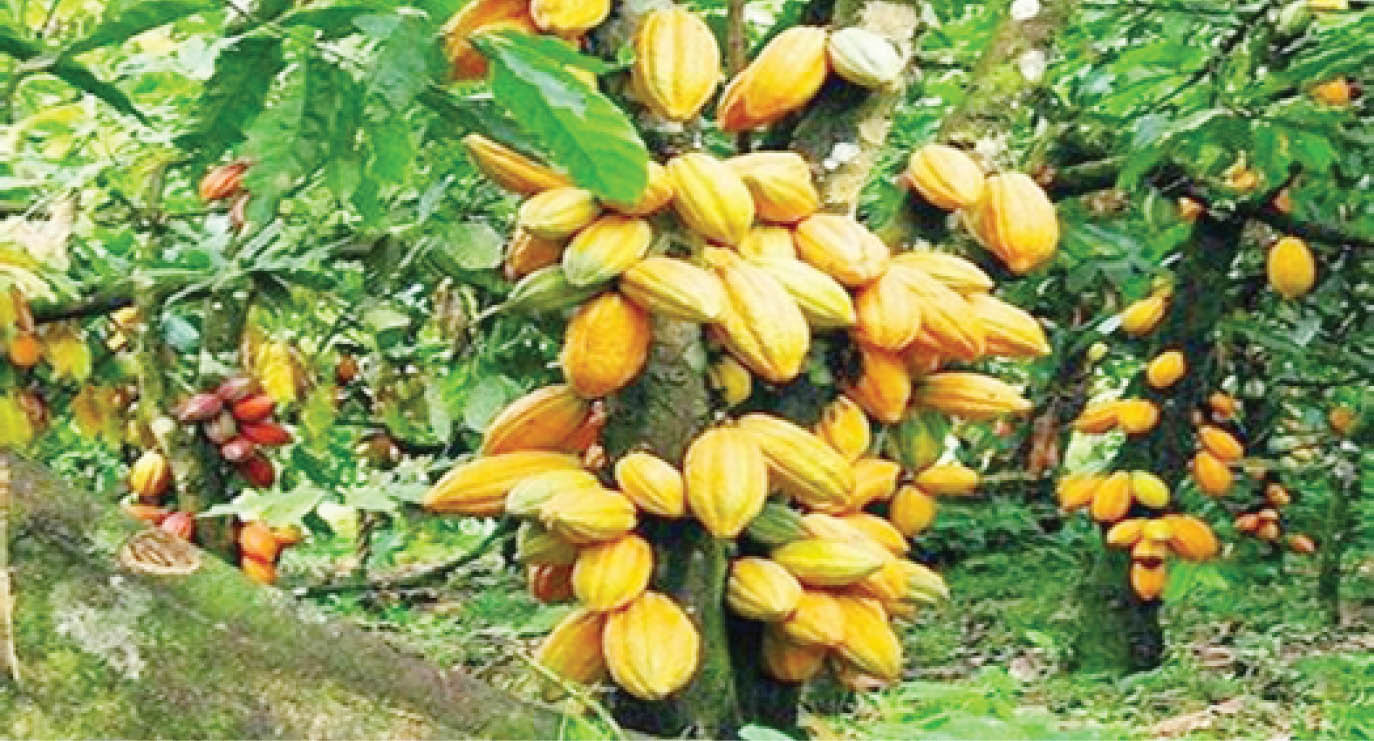Cocoa, ogbono, bee farmers receive inputs, improved varieties to scale up production
Women groups in communities in the Cross River National Park, as well as some surrounding communities, have received new varieties of bush mango (ogbono) for planting. The improved varieties are the dry season types, which are not common in the state; and they grow quicker than the wet season variety. The deputy country director of […]

Experts say farmers need high yielding cocoa seedlings to increase production
Women groups in communities in the Cross River National Park, as well as some surrounding communities, have received new varieties of bush mango (ogbono) for planting.
The improved varieties are the dry season types, which are not common in the state; and they grow quicker than the wet season variety.
The deputy country director of the Wildlife Conservation Society (WCS), with headquarters in Calabar, Dr Imong Inayom, spoke at a stakeholders’ meeting with the Cross River National Park (CRNP), host communities, on how to improve the management of the park.
He listed varieties of livelihood alternatives they have extended in order to dissuade them from plundering the CRNP.
Inayom said they had formed the women into cooperatives, provided technical training on how to plant bush mangoes and build small stores to enable them secure the produce until prices improve.
“Sometimes we help to evacuate the produce to sell for them at higher prices and return the proceeds to them. This is because we find that big merchants from the east do come to buy off the bush mangoes at lower rates, thereby cheating the women,” he said.
Cocoa farmers in the state have also received technical training, cocoa pods and seedlings from the WCS
According to Inayom, many cocoa farmers do not have access to them – the reason they have intervened.
“We bought improved variety of cocoa seedlings from the Cocoa Research Institute of Nigeria (CRIN) in Ibadan and supply to the farmers to plant. They can begin harvesting after three or four years after the gestation period.
“We monitor their progress, ensuring that they don’t plant within protected areas. We ensure that they establish new cocoa plantations and not to go and clear old ones,” he added.
Several bee farmers in the state have also benefitted from technical training, according to Inayom.
They have also received materials for construction of beehives, protective clothing and baits that attract bees.
“The various supports extended for beekeeping have encouraged local farmers. This has helped to boost production, and we help to buy it off.
“We have supplied the women bush mango and cocoa farmers with rain boots, wheelbarrows and tarpaulins to help dry their produce. On the whole, more than 4,000 locals in the CRNP have benefitted from these farm supports,” he said.
Mrs Angela Ntui, 56, a bee farmer who attended the meeting, said she concentrated on beekeeping to sustain her family, adding that the price of honey has become attractive.
“There’s good business and income from beekeeping and sale of honey. Proceeds from honey now keep me going. We are happy for the supports from the WCS,” she said.
A cocoa farmer, Ntufam Denis Francis confirmed that within three years, the new variety is ready for harvesting, but the cost of chemicals and herbicides were prohibitive.
